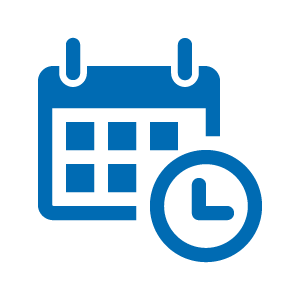Compulsive acts and other compulsive symptoms
Compulsive acts, or compulsions, refer to ritual-like behaviour, the aim of which is to reduce anxiety and to prevent certain fears. Typical compulsions include washing, checking, repeating, counting, organising and hoarding. Compulsions can manifest as inner thoughts or as actions that can be seen by others.
Compulsive behaviour may also include obsessional thoughts, or obsessions. The mind gets overwhelmed by distressing thoughts that seem impossible to get rid of even though the person knows they are not real. Obsessions can also take the form of distressing images. Obsessions cause anxiety that makes people develop rituals to reduce the anxiety or to avoid fear related to the obsessional thoughts. Typical examples include fear of contamination (fear of catching diseases), fear or suspicion of harming oneself or others, fear of losing control, intrusive sexual images, fear of diseases, and the need to keep things in strict order.
Compulsions and obsessions are fairly common and occasionally occur as part of normal life. They cause a problem if they become persistent or disproportionate, cause excessive anxiety and disrupt life by taking too much time, and cannot be resisted. In this case, we’re talking about obsessive-compulsive disorder (OCD), which affects 2% to 3% of people. Compulsive symptoms are seen more often in people with certain developmental neuropsychiatric conditions such as Tourette syndrome or Asperger’s syndrome.
The aim of compulsive behaviour is to reduce anxiety. Often this is successful in the short term, but in the long term the vicious cycle of compulsive behaviour becomes more intense and the anxiety increases. To relieve the anxiety, more frequent compulsive acts are required. Getting rid of the compulsions requires getting rid of the ritual-like behaviour.
Self-care of compulsive symptoms
- Admit to yourself that your behaviour and thoughts are compulsive and you need help in processing them. You shouldn’t feel ashamed about this.
- Learn to identify the vicious circles regarding your compulsive symptoms: Which thought is recurrent and causes you anxiety? Which act or ritual do you use to relieve anxiety? What are the short-term and long-term consequences of your ritual-like behaviour?
- Try to reduce your ritual-like behaviour. This way you’ll gradually expose yourself to anxiety and realise that nothing bad will happen even if you don’t react to the anxiety-causing thought.
- Remember that people have all kinds of thoughts and images in their mind even if they have no intention of acting on them. In other words, thinking about something doesn’t mean that you will carry it out.
When should you seek treatment?
You should seek help if the compulsive symptoms have continued for several weeks, disrupt your life significantly and you cannot resist them by yourself. Those with compulsive symptoms typically delay seeking medical treatment because they feel ashamed. Moreover, the compulsive symptoms usually develop gradually, which can make it more difficult to realise the seriousness of the situation. To increase the chances of treatment success, it’s essential to seek help early. Compulsive symptoms can often recur even after long symptom-free periods if life becomes stressful. If this is the case and the self-care methods don’t bring rapid relief, you should seek treatment again.
Treatment of obsessive-compulsive disorder
In the treatment of OCD, good results have been achieved with cognitive-behavioural therapy. The key point of the therapy is to accept and abandon the obsessional thoughts and to face the anxiety. The aim is not necessarily to get rid of the symptoms altogether but to reduce them as much as possible, and to decrease or eliminate the suffering they cause. In addition to therapeutic methods, OCD can also be treated with medication, usually with antidepressants – sometimes in conjunction with antipsychotics. In severe instances, deep brain stimulation may also be helpful.
Information sources: The Finnish Medical Society Duodecim: Terveyskirjasto, Terveysportti, Mielenterveystalo.fi (Mentalhub.fi)
FSHS Psychologist / 26 June 2023
Service options

